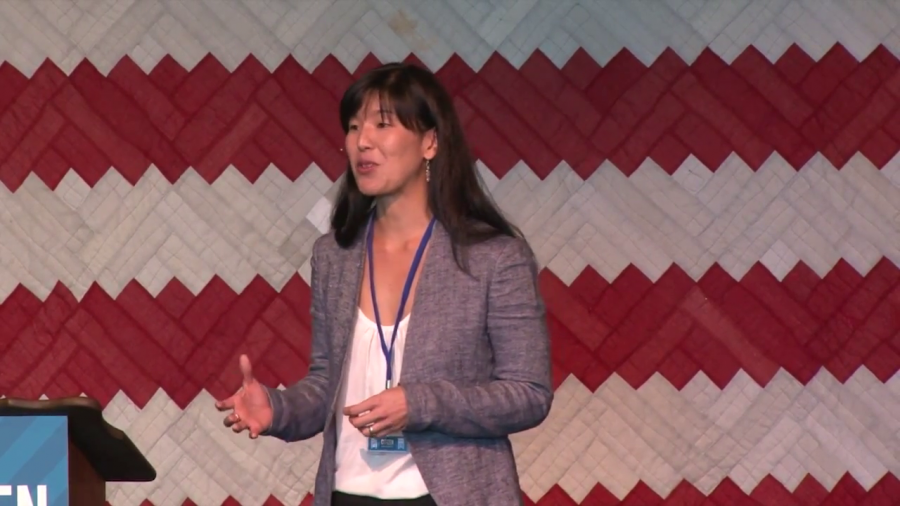Ai-Jen Poo: In the spirit and in honor of my grandmother and all the people in our lives who’ve taken care of us, let’s give them all a huge round of applause.
Mrs. Sun, like so many nannies and housekeepers and caregivers for the elderly across the country, contribute so much to our families, to our communities, and to our economy. And yet most domestic workers earn poverty wages, when they’re paid at all, have no benefits, no labor protections, and many are undocumented, without a path to citizenship. Which will change soon, and we’re going to hear more about that.
But today in America, the people who take such good care of us every day, taking care of the most precious elements of our lives, are not cared for in return. And, being my grandmother’s granddaughter, it won’t surprise you that I now work for an organization of Mrs. Suns.
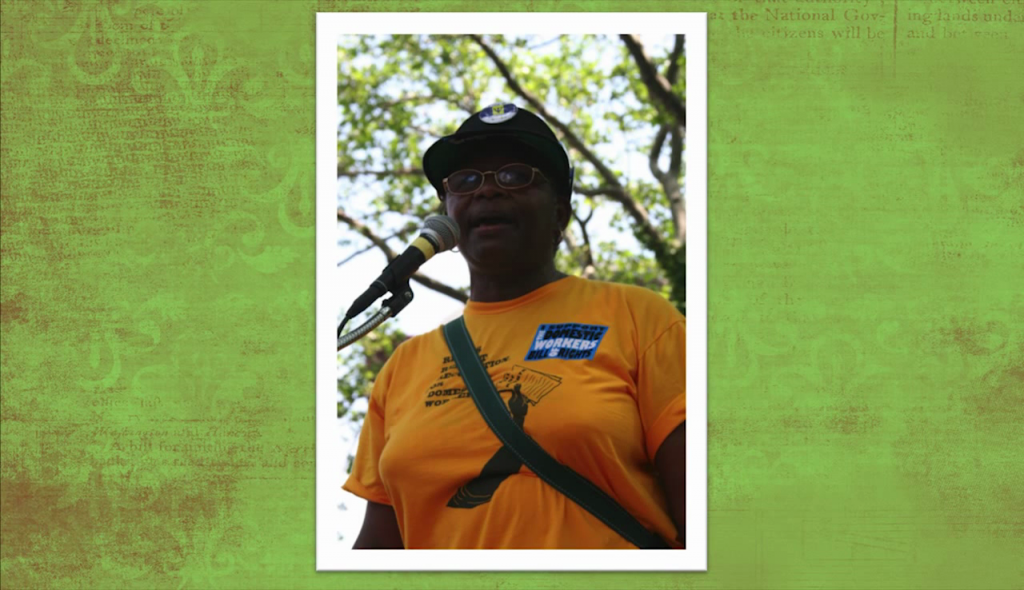
Women like Marlene Champion, who is a caregiver in New York. Marlene loves doing the work that she does. She takes incredible pride in taking care of children and watching them grow and learn, and taking care of the elderly and watching them come out of their shells. And she’s really seen it all. She’s seen employers who she’s kept in touch with for twenty years, decades. And she’s also seen the whole other end of the spectrum. Employers who’ve asked her to clean the floor with a tooth brush. Employers who haven’t paid her for several weeks on end, saying that they “forgot.” She’s seen it all. And that’s why she joined our movement. And she helped make it possible for there to be the passage of the first ever domestic workers’ bill of rights in the state of New York in 2010.
So, domestic workers have basic rights and protections on the job and can be treated fairly in New York. And now, just two years later there are similar bills pending in five states around the country. So we’re making a lot of progress.
But a few years ago, women like Marlene started coming to us and saying, “We want training in elder care.” And we were finding that more and more workers, housekeepers, and nannies were suddenly being called upon to take care of the aging relatives of their employers. And they wanted training. They wanted preparation. And what we realized was that we were experiencing the rumblings of a tremendous demographic shift that’s happening in this country. The age wave.
Today in America, every eight seconds, someone turns sixty-five. Ten thousand people per day, four million people per year, turn sixty-five in America. Some call it the “silver tsunami.” Whatever you call it, it has arrived. And it comes at the same time that we’re experiencing another demographic shift, with the growth of communities of color, particularly immigrant communities, where many say that by the year 2040 we will be a majority minority nation. Well, if you think of women as a minority then we’ve been a majority minority for a long time. But whatever is happening now is certainly starting to reshape American politics.
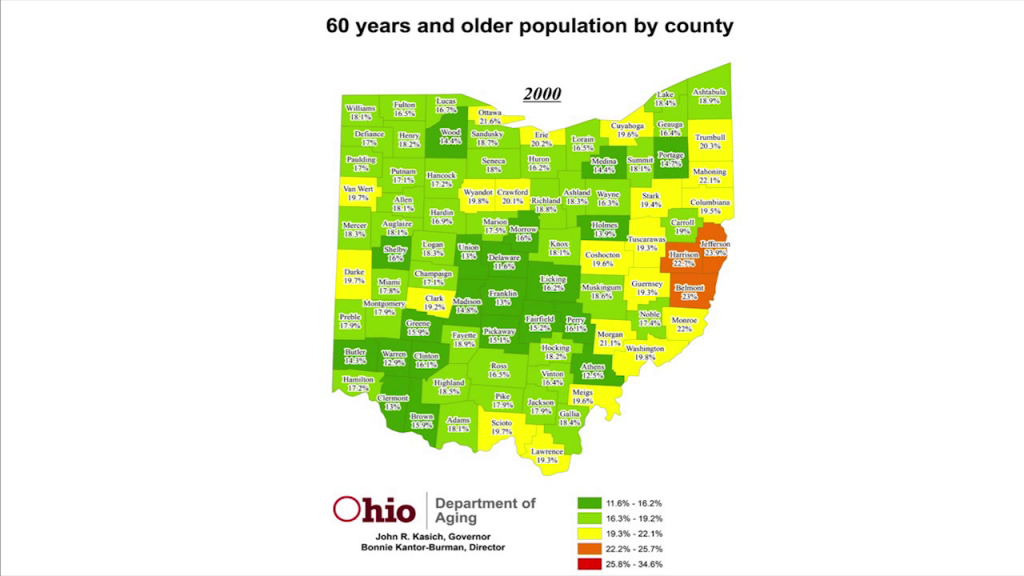
Take Ohio, for example. This is a map of Ohio by county. Today in Ohio, the population is 83.6% white, 12.4% African-American, and 5% immigrant, including Latino. The orange counties are counties where 23–25% of the population is age sixty or older.
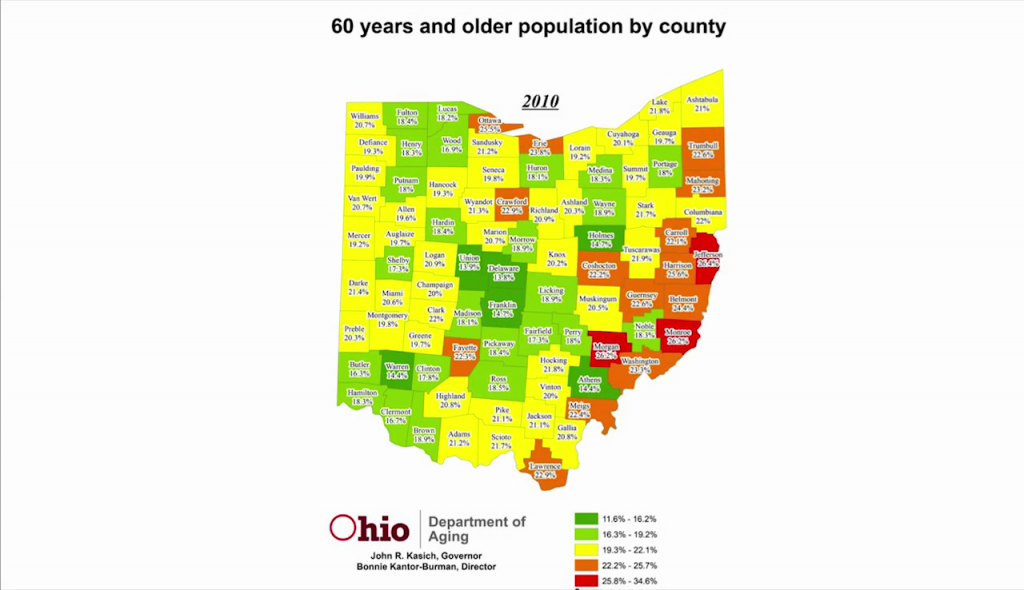
Now let’s look at Ohio in 2010. The red counties are the counties where 25–35% of the population is over the age of sixty.
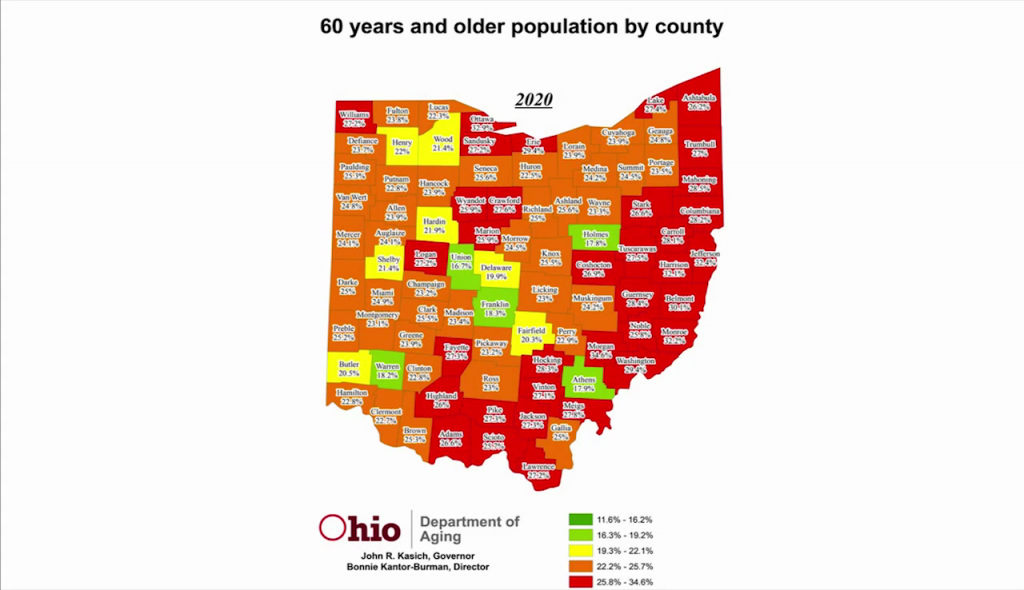
And now let’s take a glimpse into our near future. This is Ohio in the year 2020.
But the truth is that many of us are already feeling this shift. Many of us know somebody who’s been diagnosed with Alzheimer’s. Many of us have experienced a family member having a stroke. Many of us simply have people that we know and love in our lives who shouldn’t be driving on their own or operating a stove on their own. It’s happening, and we’re feeling it all around us, that the need for care, support, and services for the aging is really growing. And we’re all feeling it, we can’t manage it, we don’t know how we’re going to afford it. And sometimes we need to hire people who are undocumented, and there’s just all of these difficulties. Every way that you look at it, there’s lots of difficulties.
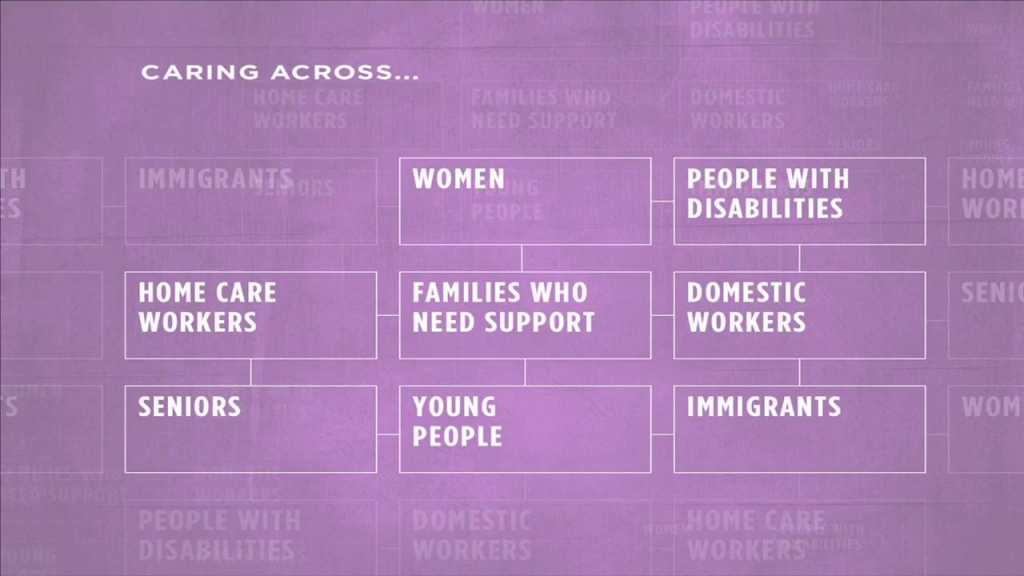
So here we are grappling with it, and we’ve suddenly become a country of millions of families and individuals who are grappling with the same sets of struggles in isolation. And that is why we started talking to aging groups, disability groups, Alzheimer’s associations, home care unions, women’s organizations, caregiver associations. And what we realized is that this is a moment of opportunity. It’s an incredible moment of opportunity to bring us all together to fundamentally reclaim care as an American value and create a caring economy that actually works for all of us. That ties our interests together, whether we’re consumers, or care workers, or providers, or family members, which is pretty much all of us. That we all have a completely interdependent and shared destiny, and a common interest for a more caring America that works for all of us.
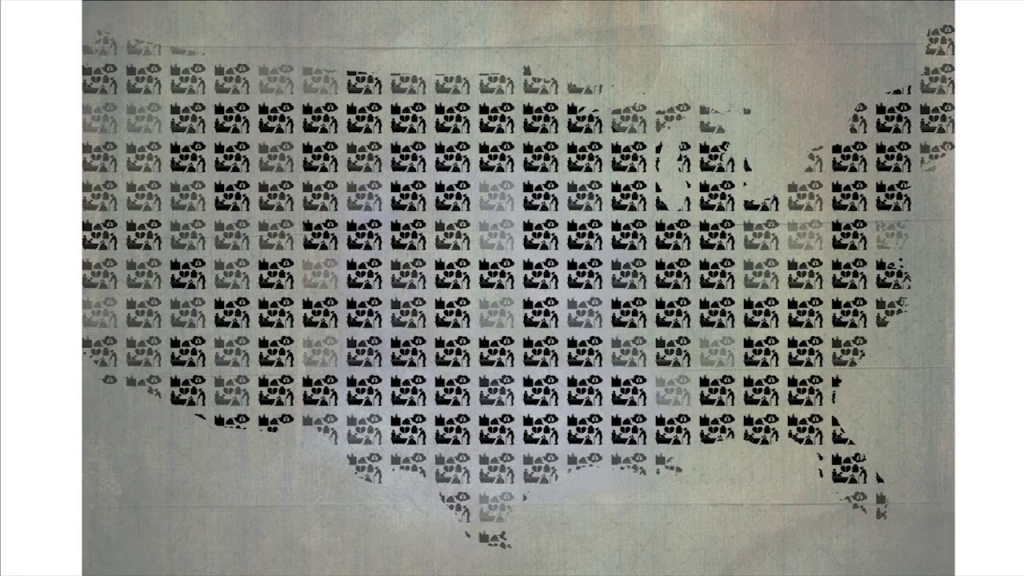
So, we are building a movement called Caring Across Generations. And what we’re doing is we’re building what we call a new caring majority in the United States that brings together all of our different experiences across race and class and generation, and puts forward a vision for the future that includes and has a place for all of us, and takes care of all of us.
And they’re very concrete solutions that we can pursue. Solutions like the creation of two million new, quality jobs in home-based care to support people to stay at home and age in place. More affordable, accessible care for all of us. And pathways to career advancement and citizenship for the immigrant care workforce. There are lots of solutions that we can pursue here.
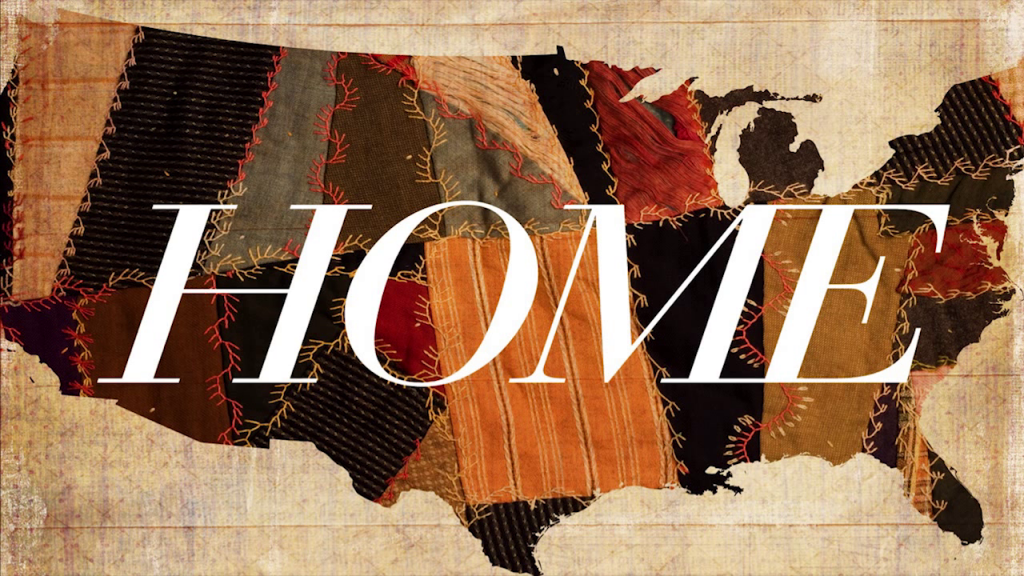
But what is at stake is actually much bigger than just home care. What’s at stake is the future of the country. The country is changing right before our eyes. And it is up to us to craft a vision for the future that truly does take into account who we are and who we’re becoming as a nation.
So whether we’re a white senior in Ohio, or an African-American veteran in Virginia, or an immigrant domestic worker in Los Angeles, or an LGBT young person in Arizona, the future of this country has to not only have a place for all of us but be able to take care of all of us. And in crafting that vision and building it together, we can fundamentally transform the country in all of our interests.
And if we do not, we risk greater polarization along lines of race and generation than ever before, and greater political gridlock on all of the things that we care about. So there’s so much at stake here in this moment in history in the country, tremendous opportunity, and it’s up to us.
So in building this movement for a caring majority, we believe that we have to return to our fundamental core values. Values that really bring out the best in who we are. Values like respect. Like opportunity. Like democracy. And care. Dare I say love. The stuff that our grandmothers taught us. The stuff that brings out the best in who we are as individuals and as a nation.
And this movement is going to be powered by relationships and story. It’s going to be driven by the story of who we are and how we value care, and how we want to take care of each other and our families. And once we sit and listen to one another’s stories, we’ll be able to build a real, meaningful human relationships across very diverse experiences. And many people have talked about the power of story today. So, this caring majority it’s going to be powered by story.
We believe that the new caring majority in this country is right here in this room, and you can see the seeds of it everywhere all around. That it is within reach. And many of us or all of us here in this room today are starting to build it. You can see seeds of it everywhere, including right in our own families. Thank you.
